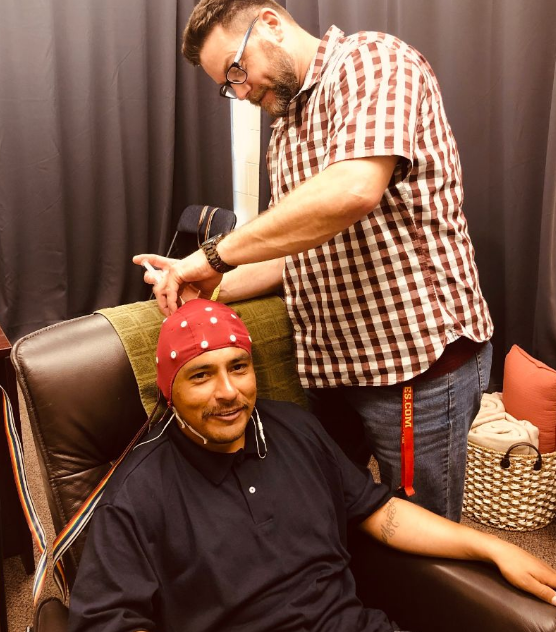Recidivism Reduction
Neurofeedback Recidivism Reduction Project (NRR)
This project aims to improve the lives of formerly incarcerated persons and tests whether neurofeedback can significantly reduce recidivism (relapse into criminal behavior).
The NRR project began in January 2018 and is a collaboration between Community Solutions, Inc. (CSI) and the Wuttke Institute for Neurotherapy.
The project centers on a 4-year randomized control study with 360 participants to measure the efficacy of the most advanced form of neurofeedback (LORETA z-score training) in reducing recidivism of high-risk-to-reoffend clients. The Project is currently funded by Serving USA, the James S. Bower Foundation and the Santa Barbara Foundation.

One of the project’s early clients describes his experience:
“I’m 35 years old and have spent 15+ years in prison. When I was 13 years old, I became very anxious. I self-medicated and became an addict. Things went bad and I ended up in prison. When I got out this time, I still had high anxiety. I was unable to get on a bus in the morning to go to work. A doctor wanted to give me pills but I’m an addict and I didn’t want to take any more pills. When neurofeedback became available, I immediately signed up. Today I feel totally calm. I am enrolled in Santa Barbara City College, getting great grades and was recently elected President of the EOPS Club at school.” (cited from Serving USA newsletter, February 2019)
Sherry Albert, Chief Operating Officer of Community Solutions, Inc. about the project:
“If Neurofeedback can significantly reduce recidivism, we can have a very positive impact on people’s lives, save enormous amounts of money in the criminal justice system and simultaneously increase public safety.” (cited from Serving USA newsletter, February 2019)

